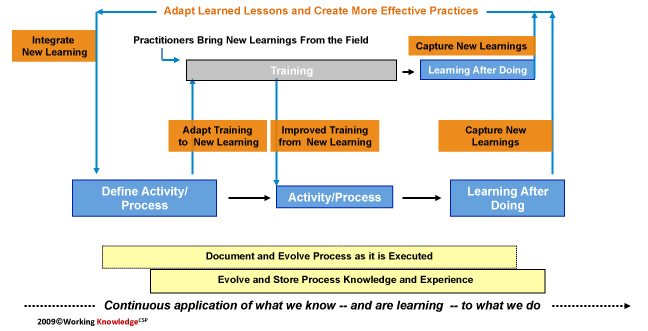
Operationalizing Learning© is a highly effective knowledge management practice developed and implemented by Working KnowledgeCSP. Working KnowledgeCSP will work with you to identify the most critical and relevant processes in your organization. Using Critical Knowledge Capture (CNC), a systematic and disciplined process for capturing operational (practitioner) knowledge and then analyzing the flow of work within the process, we will then work with you to map the process ensuring that it reflect inputs, outputs, and the influence and relationships of other people, processes, and factors that may have an impact on the process outcome and outputs.
Process analysis and mapping helps you to visualize and communicate the foundational building blocks of your organization showing: (1) how and where value is created, (2) where the organization’s resources are consumed, and (3) which are your primary connections with customers, constituents and other organizations. Unfortunately, business processes in many organizations are undefined, not representative of how work actually gets done, and inefficient. Organizations that are unable to consistently learn before, during, and after process execution deliver marginalized performance and poor quality. If you can’t see it, it is harder to improve it through the reinvestment of learning associated with the process.
High performing, knowledge enabled organizations (1) align process, execution of the process, and training on the process, (2) through proven techniques for quickly capturing the knowledge about the process and then (3) integrate and align this new learning with the training necessary to execute the process as it is actually being performed.
This ensures that the most current “know how” and “know why” of process execution is always part of the process training so new staff enter an operational environment aligned with and knowledgeable about the way work actually gets done. This is known as ‘Operationalizing Learning.’
Specifically, we work with you to create alignment between codified process, the execution of the process, and the training about the process, to ensure that:
- Changes in operational field knowledge, based on new learnings elicited from those who have the responsibility for delivering the work, is reinvested in the process to ensure that the codified process always reflects that most current practitioner knowledge and practices,
- The most current operational (practitioner) knowledge is captured and then made immediately available for reinvestment to make corresponding and concurrent changes in the training supporting the process.
- What is taught in the “schoolhouse” reflects the way that work is actually being accomplished so that graduates of the training are able to operationalize that learning and deliver the expected outcomes and output immediately.
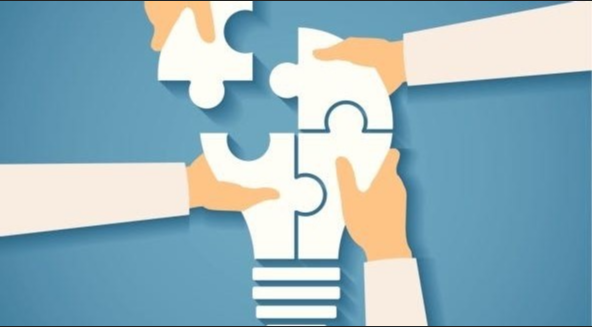 We work with you to facilitate your understanding of your business processes and to understand what knowledge is needed to more effectively and efficiently execute these processes. You will not only understand what knowledge is needed to execute each step of the process or workflow, but also what knowledge you have that you need and what knowledge you need that you don’t have. This insight will help you to more effectively target and integrate KM concepts and practices into your processes or workflow to “create value from your knowledge.” The outcome will provide insight to:
We work with you to facilitate your understanding of your business processes and to understand what knowledge is needed to more effectively and efficiently execute these processes. You will not only understand what knowledge is needed to execute each step of the process or workflow, but also what knowledge you have that you need and what knowledge you need that you don’t have. This insight will help you to more effectively target and integrate KM concepts and practices into your processes or workflow to “create value from your knowledge.” The outcome will provide insight to: 
 Managing the Risk of Workforce Turnover and Knowledge Loss: We work with you to understand your workforce turnover challenges and then provide you with strategies and implementing practices to mitigate the risks of knowledge loss and retention within your organizational context. You not only will gain the insight necessary to immediately address your knowledge loss and retention challenges, but also lay the foundation for establishing a disciplined and sustainable KM strategy and implementing framework to mitigate the loss of knowledge and improve knowledge retention in the long term.
Managing the Risk of Workforce Turnover and Knowledge Loss: We work with you to understand your workforce turnover challenges and then provide you with strategies and implementing practices to mitigate the risks of knowledge loss and retention within your organizational context. You not only will gain the insight necessary to immediately address your knowledge loss and retention challenges, but also lay the foundation for establishing a disciplined and sustainable KM strategy and implementing framework to mitigate the loss of knowledge and improve knowledge retention in the long term.  Knowledge Based Business Continuity Planning: We work with you to focus on the human capital or tacit knowledge dimension of continuity planning. Complementary to the focus on the protection of the physical resources of a critical infrastructure necessary to operate, Knowledge Based Continuity Planning provides you with strategies, implementing practices, and tools you need to mitigate and then to recover from a catastrophic loss of your intellectual resources.
Knowledge Based Business Continuity Planning: We work with you to focus on the human capital or tacit knowledge dimension of continuity planning. Complementary to the focus on the protection of the physical resources of a critical infrastructure necessary to operate, Knowledge Based Continuity Planning provides you with strategies, implementing practices, and tools you need to mitigate and then to recover from a catastrophic loss of your intellectual resources.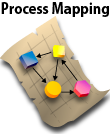 Knowledge Enabled Process Analysis and Mapping helps you to visualize and communicate the operational building blocks of your organization (1) where you create value, (2) where many of your organization’s resources (dollars, hours, etc.) are consumed, and (3) which is your primary connection with clients/customers, suppliers and business partners. Unfortunately, business processes in many organizations are undefined, not representative of how work actually gets done, and inefficient. Organizations that don’t consistently learn before, during, and after process execution deliver marginalized performance, poor quality, and a less than optimum client/customer experience. We provide you with a practical and effective set of skills, techniques and methods for identifying, mapping, measuring, objectively analyzing and continuously improving business processes and performance within your organization and across boundaries with clients/customers, suppliers and business partners.
Knowledge Enabled Process Analysis and Mapping helps you to visualize and communicate the operational building blocks of your organization (1) where you create value, (2) where many of your organization’s resources (dollars, hours, etc.) are consumed, and (3) which is your primary connection with clients/customers, suppliers and business partners. Unfortunately, business processes in many organizations are undefined, not representative of how work actually gets done, and inefficient. Organizations that don’t consistently learn before, during, and after process execution deliver marginalized performance, poor quality, and a less than optimum client/customer experience. We provide you with a practical and effective set of skills, techniques and methods for identifying, mapping, measuring, objectively analyzing and continuously improving business processes and performance within your organization and across boundaries with clients/customers, suppliers and business partners.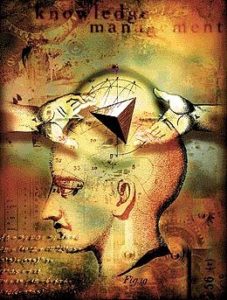 The Knowledge Loss Impact Assessment provides you with understanding of the dynamics of your workforce and culture with respect not only to your unique turnover factors, but also about how your organization captures, transfers, adapts, and reuses its critical knowledge in supporting your clients or customers and delivering the mission.
The Knowledge Loss Impact Assessment provides you with understanding of the dynamics of your workforce and culture with respect not only to your unique turnover factors, but also about how your organization captures, transfers, adapts, and reuses its critical knowledge in supporting your clients or customers and delivering the mission. Knowledge Management “Side-by-Side” Coaching provides you with targeted insight and advice about your existing knowledge management framework and implementation where you have challenges or questions. We work with you on a “one to one” level leveraging our insight and experience to provide you with recommendations to improve or sustain the value of your KM investment.
Knowledge Management “Side-by-Side” Coaching provides you with targeted insight and advice about your existing knowledge management framework and implementation where you have challenges or questions. We work with you on a “one to one” level leveraging our insight and experience to provide you with recommendations to improve or sustain the value of your KM investment.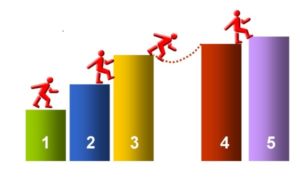 The Knowledge Management (KM) Maturity Assessment examines five critical success elements characteristic of high performing, knowledge enabled organizations. You will understand your organization’s readiness to develop and deploy a sustainable capability to capture, adapt, transfer, and reuse your knowledge. The greater your capability is to leverage your knowledge, the greater your ability to make the most effective decisions, develop the most effective solutions to the challenges you face, and more readily adapt to change.
The Knowledge Management (KM) Maturity Assessment examines five critical success elements characteristic of high performing, knowledge enabled organizations. You will understand your organization’s readiness to develop and deploy a sustainable capability to capture, adapt, transfer, and reuse your knowledge. The greater your capability is to leverage your knowledge, the greater your ability to make the most effective decisions, develop the most effective solutions to the challenges you face, and more readily adapt to change.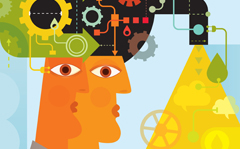 Leadership and Team Transition Knowledge Transfer delivers effective and efficient transfer of critical knowledge and experience from the outgoing leadership or team to a successor leadership team or individual replacements. The knowledge of the transitioning leadership and its team members has immense value regarding planning, operations, projects, initiatives, and challenge that will likely face the incoming leadership. This is especially relevant in roles where the leadership team or team members have accumulated a significant amount of knowledge in addressing major challenges and initiatives that will transcend that leadership and the organization.
Leadership and Team Transition Knowledge Transfer delivers effective and efficient transfer of critical knowledge and experience from the outgoing leadership or team to a successor leadership team or individual replacements. The knowledge of the transitioning leadership and its team members has immense value regarding planning, operations, projects, initiatives, and challenge that will likely face the incoming leadership. This is especially relevant in roles where the leadership team or team members have accumulated a significant amount of knowledge in addressing major challenges and initiatives that will transcend that leadership and the organization.